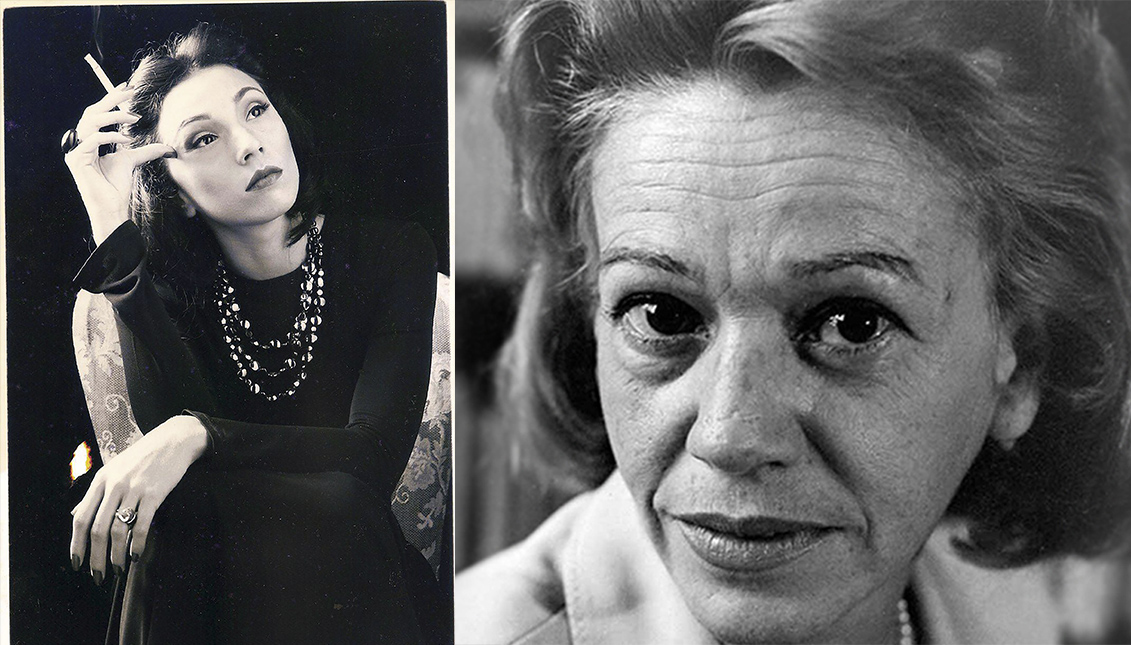
The "forgotten" female writers of the Latin American boom
From Elena Garro to Maria Luisa Bombal, the boom has its influential female authors, although history only presents them to us as "partners."
Great and unfriendly, José Donoso remembered the authors of the Latin American boom as "a club of macho men." And if you make the effort to list them, you will see how that version of history is still alive because the first names and the first "swords" are THEM: Vargas Llosa, Cortázar, García Márquez, Donoso himself, Carlos Fuentes, Octavio Paz.
In fact, this article itself is marked by patriarchal poison, since trying to talk about "the big women of the boom," we start by mentioning men.
However, the female authors of the boom were very present and some were very influential for this "club of males" — beyond Isabel Allende, who has rarely claimed it.
Among them is María Luisa Bombal, who although a little before the boom, inspired Juan Rulfo to write Pedro Páramo with her short novel The Shoudred Woman, was really the precursor of magical realism.
When mentioning her, the media only refers to her failed relationships, her alcoholism or her suicide attempts, but Bombal was more than a yellow and gossip-laden vision of culture.
The Chilean created a short but substantial work full of eccentricities, beauty, poetry and above all, a discourse centered on female characters that reflected her most intimate and darkest world. But it's also important to note the disdain with which her male companions spoke about her.
When speaking of Bombal, Neruda said that she was the only woman with whom one could talk about literature.
How wrong he was.
On the altar of our literary godmothers are writers such as Brazilian Clarice Lispector, the Mexicans Elena Garro and Rosario Castellanos, and the Argentine Silvina Ocampo, who until a few years ago, was known only as the wife of Bioy Casares, despite the shadow she cast over him as a storyteller and being one of the great voices of Gaucho literature.
This systematic forgetfulness and the soap operatic treatment they have received in the media — beyond gender studies — was reaffirmed in 2016 with the re-edition of Garro's Reencuentro de personajes, and the scandal leaped from an embarrassing sash. It went like this:
"Octavio Paz's wife, lover of Bioy Casares, inspired by García Márquez and admired by Borges."
Although the publisher withdrew the advertisement after numerous complaints, the evil was already done.
Some time ago, the Ecuadorian author Mónica Ojeda encouraged the creation of a library of chosen "ancestors" with all the authors that her time forgot.
Since good ideas must be taken up alone at first, she freed up several shelves in her bookstore for the authors of the boom. Here are some of the recommended titles:
The town of Ixtepec is the narrator of episodes told by Elena Garro in what was her first great effort in literature. It's a book endowed with an enormous sensory power, where the author mixes cruelty and faith, passion and hate, and lies through a multitude of characters from different social classes that live in the hot land in the heart of Mexico — an imaginary place that could have been everyone.
Although some consider her today a godmother of magical realism, Elena Garro always disdained the label, which she considered to be mercantilist and which for her was, in essence, the indigenous worldview. It is another form, if you like, of literary appropriation.
RELATED CONTENT
Marked by the use of the first person, the long flows of consciousness through short sentences and the deep psychological analysis of the characters, Clarice Lispector is by her own merit one of the great voices of the 20th century, and just in 2020 celebrated her centenary.
The Hour of the Star, which she wrote shortly before her death, tells the story of Macabéa, a girl from the north-east of Brazil who moves to Rio de Janeiro and whose life and ambitions collide with this new urban, fast and dehumanized society.
Considered a masterpiece of Latin American narrative, the novel is based on the uprising of the Chamulas in Chiapas at the end of the 19th century, which culminated in the crucifixion of one of them by proclaiming him "indigenous Christ."
Castellanos takes us to a more intimate Mexico, that of the agrarian reform of the Lazaro Cardenas government, to portray the poverty and oppression of the indigenous world with masterful rawness.
Published in 1934 and 1938, these are two short novels by María Luisa Bombal that are often combined in the same book.
In both stories, death and the feminine world play a central role. In The Last Fog, a story that Bombal wrote when she was only 23 years old, she immerses us in a universe between the real and the dream through her protagonist, who is married to a widower and tries to make him behave like his deceased wife while she fantasizes about another man she has never met.
As an interesting detail of the great writer, she was the first Latin American author to describe the sexual act from the female point of view. And she did so with an indomitable prose that makes her perhaps the least-known, but most key, "ancestor" of a literature that flees from oppression and pierces together the so-called "veil of Isis."
It also happens in The Shrouded Woman, where Ana María, dead and in her coffin, has a last encounter with some of the most important people in her life. It's an extraordinary book, where instead of turning the woman into the silent victim of a story and the motive that triggers the plot, she gives it her deserved voice.
Dust off your shelves, forget what you learned about the 'boom' and blow it up for them to emerge.












LEAVE A COMMENT: